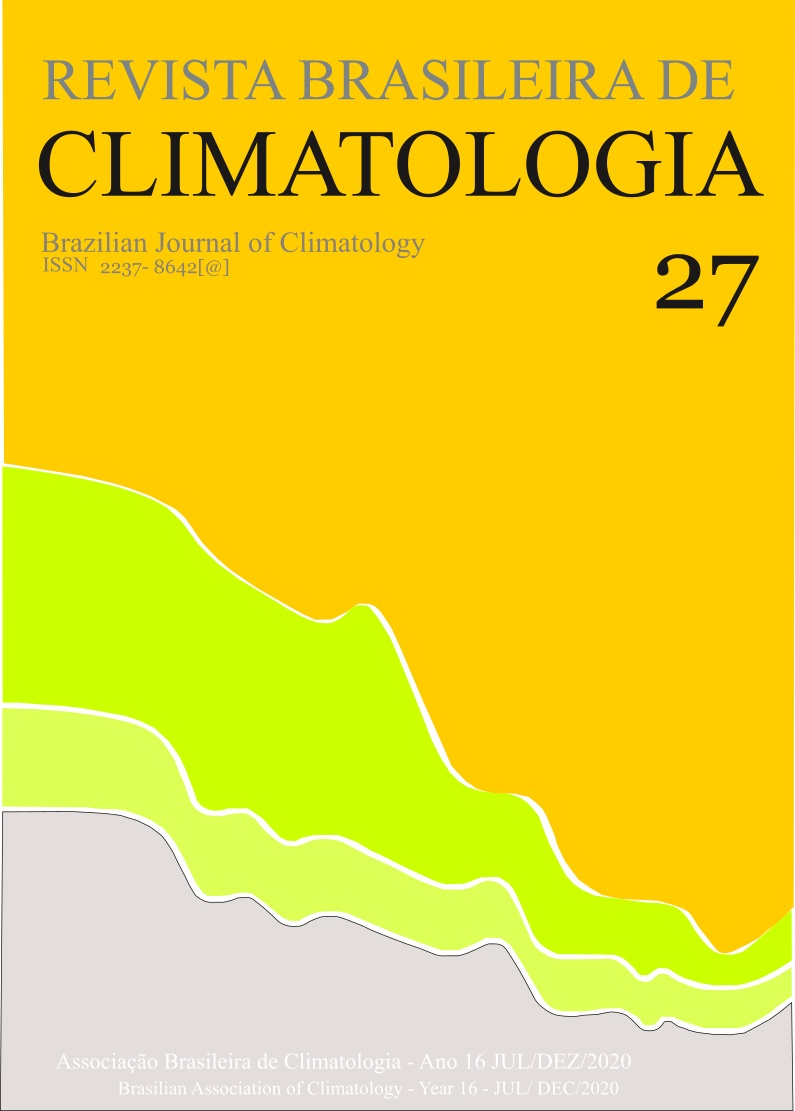AGROCLIMATIC RISK ZONING OF PINEAPPLE (Ananas comosus) IN THE HYDROGRAPHIC BASIN OF PARANÁ RIVER 3, BRAZIL
DOI:
https://doi.org/10.5380/abclima.v27i0.69759Palabras clave:
Climate aptitude, Climate Variability, Agricultural PlanningResumen
Fruticulture is a prominent segment of Brazilian agriculture. It presents a continuous evolution of production, attending to the growing internal and external demand, besides being one of the main activities of family agriculture. Despite of recent technological and scientific advances, climate is still the most important variable in agricultural productivity. Studies that show the climatic variability and the impact on the physiological development of plant species are fundamental for the planning and agricultural calendar, aiming the conservation of resources and a sustainable management of the production. In this context, one of the first information to be considered when starting a crop is agro-climatic zoning, since it provides climate-related risk information and helps in decision-making and agricultural planning. Thus, the objective of this work was to carry out agroclimatic risk zoning for the Pineapple (Ananas comosus) in the Paraná River basin 3, Paraná state, Brazil. For this, meteorological data of 43 stations with series from 1976 to 2018 we used. The climatic risk analysis was based on the requirements of the species of precipitation, average annual temperature and in the coldest month, risk of frost and insolation. Statistical and geoprocessing techniques were applied to ensure full regional coverage of information and to contribute to decision-making. Favorable climatic conditions were identified for all climatic variables in the western portion of the river basin, while in the eastern portion the risk of frost restricted the aptitude.Descargas
Descargas
Publicado
Cómo citar
Número
Sección
Licencia
A aprovação dos artigos implica a aceitação imediata e sem ônus de que a Revista Brasileira de Climatologia terá exclusividade na primeira publicação do artigo. Os autores continuarão, não obstante, a deter os direitos autorais. Os autores autorizam também que seus artigos sejam disponibilizados em todos os indexadores aos quais a revista está vinculada.
Os autores mantém seus direitos de publicação sem restrições
A Comissão Editorial não se responsabiliza pelos conceitos ou afirmações expressos nos trabalhos publicados, que são de inteira responsabilidade dos autores.
A Revista Brasileira de Climatologia oferece acesso livre imediato ao seu conteúdo, seguindo o entendimento de que disponibilizar gratuitamente o conhecimento científico ao público proporciona maior democratização do conhecimento e tende a produzir maior impacto dos artigos publicados. Os artigos publicados na revista são disponibilizados segundo a Licença Creative Commons CC-BY-NC 4.0 (https://creativecommons.org/licenses/by-nc/4.0/). Segundo essa licença é permitido acessar, distribuir e reutilizar os artigos para fins não comerciais desde que citados os autores e a fonte. Ao submeter artigos à Revista Brasileira de Climatologia, os autores concordam em tornar seus textos legalmente disponíveis segundo essa licença




